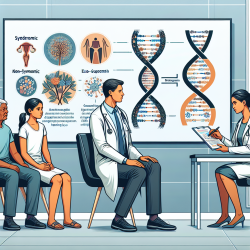Understanding the Global Burden of Antimicrobial Resistance (AMR)
The recent study, "Global burden of bacterial antimicrobial resistance in 2019: a systematic analysis," published in The Lancet, provides a comprehensive overview of the impact of antimicrobial resistance (AMR) on global health. According to the study, AMR was associated with approximately 4.95 million deaths in 2019, with 1.27 million deaths directly attributable to bacterial AMR. These numbers highlight the critical need for healthcare practitioners, including those in speech-language pathology, to understand and address the implications of AMR in their practice.
Why AMR Matters to Speech-Language Pathologists
As a speech-language pathologist, you might wonder how AMR relates to your field. The connection lies in the broader context of child health and developmental outcomes. Children are particularly vulnerable to infections, and the rise of drug-resistant bacteria can complicate treatment plans, leading to prolonged illnesses and potentially impacting their speech and language development.
Data-Driven Insights for Improved Practice
The study's findings underscore the importance of data-driven decision-making in healthcare. By understanding the specific pathogens and drug combinations contributing to AMR, practitioners can make informed choices about infection prevention and control measures. Here are some key takeaways from the research that can be applied to your practice:
- Pathogen Awareness: The study identifies six leading pathogens responsible for a significant portion of AMR-related deaths. Being aware of these pathogens can help you collaborate effectively with healthcare teams to monitor and manage infections in children.
- Infection Control: Implementing robust infection control protocols in your practice can help reduce the spread of resistant bacteria. This includes promoting hand hygiene, using personal protective equipment, and educating families about infection prevention.
- Collaboration with Healthcare Teams: Speech-language pathologists should work closely with pediatricians and other healthcare providers to ensure comprehensive care for children. Sharing insights about AMR can facilitate better treatment plans and outcomes.
Encouraging Further Research and Action
The study also highlights significant data gaps in low-income settings, emphasizing the need for expanded microbiology laboratory capacity and data collection systems. As a practitioner, you can advocate for research initiatives and policies that address these gaps, ensuring that all children receive the best possible care.
Furthermore, staying informed about ongoing research and developments in AMR can enhance your practice. Consider participating in professional development opportunities and collaborating with researchers to contribute to the growing body of knowledge on AMR and its impact on child health.
Conclusion
Antimicrobial resistance is a global health threat that requires a coordinated response from all healthcare professionals, including speech-language pathologists. By integrating data-driven insights into your practice, you can play a crucial role in mitigating the impact of AMR on children's health and development.
To read the original research paper, please follow this link: Global burden of bacterial antimicrobial resistance in 2019: a systematic analysis.










